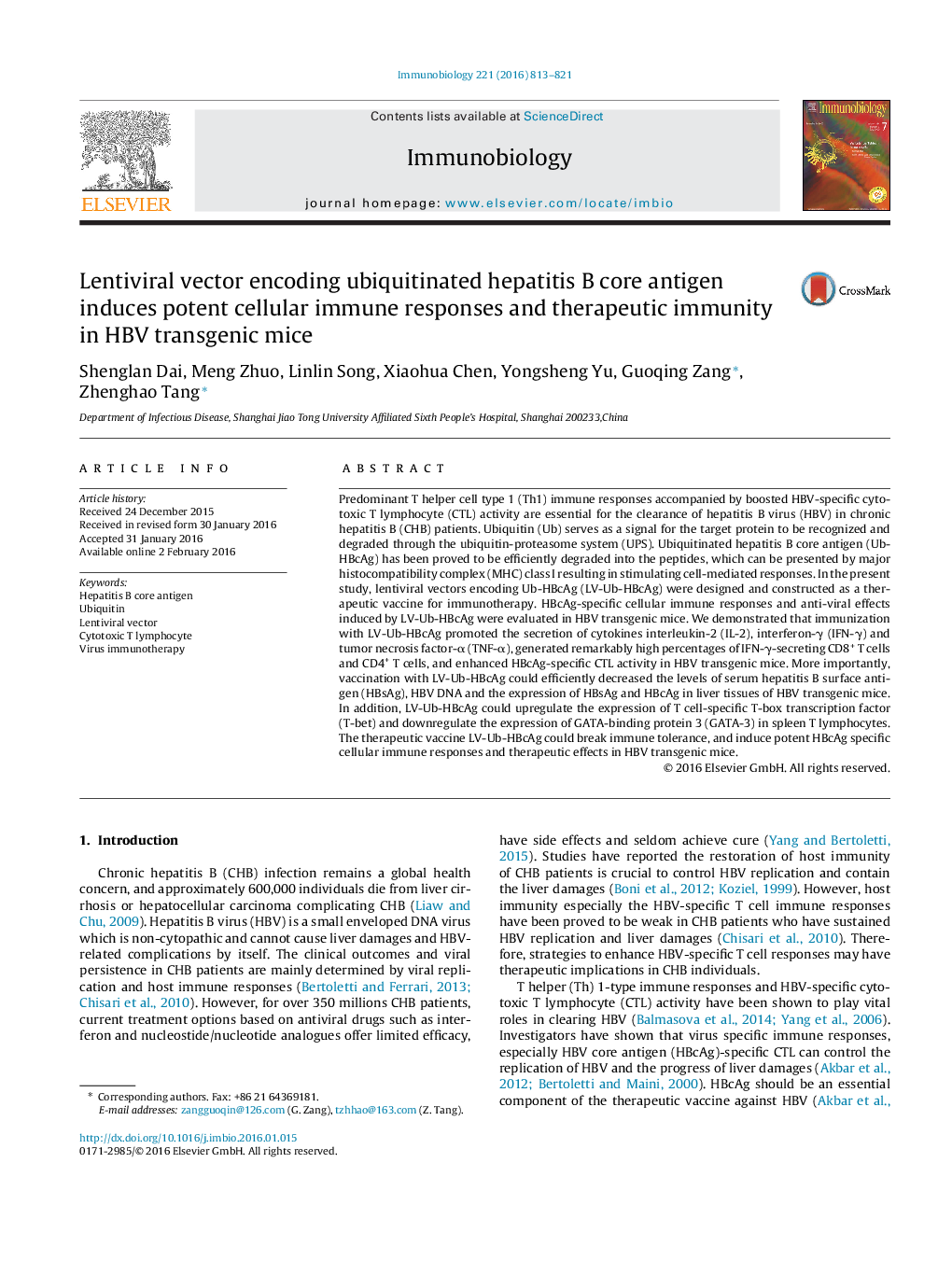| Article ID | Journal | Published Year | Pages | File Type |
|---|---|---|---|---|
| 2182729 | Immunobiology | 2016 | 9 Pages |
Predominant T helper cell type 1 (Th1) immune responses accompanied by boosted HBV-specific cytotoxic T lymphocyte (CTL) activity are essential for the clearance of hepatitis B virus (HBV) in chronic hepatitis B (CHB) patients. Ubiquitin (Ub) serves as a signal for the target protein to be recognized and degraded through the ubiquitin-proteasome system (UPS). Ubiquitinated hepatitis B core antigen (Ub-HBcAg) has been proved to be efficiently degraded into the peptides, which can be presented by major histocompatibility complex (MHC) class I resulting in stimulating cell-mediated responses. In the present study, lentiviral vectors encoding Ub-HBcAg (LV-Ub-HBcAg) were designed and constructed as a therapeutic vaccine for immunotherapy. HBcAg-specific cellular immune responses and anti-viral effects induced by LV-Ub-HBcAg were evaluated in HBV transgenic mice. We demonstrated that immunization with LV-Ub-HBcAg promoted the secretion of cytokines interleukin-2 (IL-2), interferon-γ (IFN-γ) and tumor necrosis factor-α (TNF-α), generated remarkably high percentages of IFN-γ-secreting CD8+ T cells and CD4+ T cells, and enhanced HBcAg-specific CTL activity in HBV transgenic mice. More importantly, vaccination with LV-Ub-HBcAg could efficiently decreased the levels of serum hepatitis B surface antigen (HBsAg), HBV DNA and the expression of HBsAg and HBcAg in liver tissues of HBV transgenic mice. In addition, LV-Ub-HBcAg could upregulate the expression of T cell-specific T-box transcription factor (T-bet) and downregulate the expression of GATA-binding protein 3 (GATA-3) in spleen T lymphocytes. The therapeutic vaccine LV-Ub-HBcAg could break immune tolerance, and induce potent HBcAg specific cellular immune responses and therapeutic effects in HBV transgenic mice.
